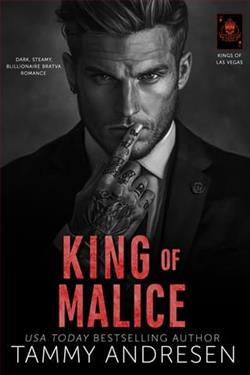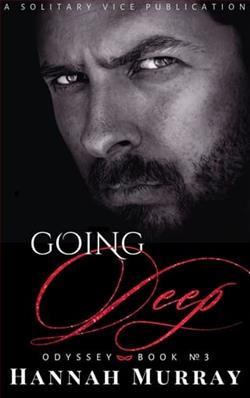Page 74 of The Dragon Ring
I gave Merlin’s sleeve a tug. “Are there likely to be many nominations?”
He dragged his gaze away from Morgana. Should I warn him to stay away from her? Would he believe me? Since he knew where I’d come from, he ought to take anything I said very seriously.
“I said, are there likely to be many nominations?”
He shrugged. “Difficult to say. It depends on whether there are many who have delusions of grandeur.”
There were a few.
Cadwy was not the first one to be proposed, though. Archbishop Dubricius judiciously waited until Meirchion the Lean’s lanky son had nominated his father to much shouting and cheering from the Rheged faction. After Cadwy’s name had been cast into the ring, someone proposed Natanleod of Caer Gwinntguic, and before long there were four nominations in the air because the five sons of Masgwid the Lame, probably with an eye to his kingdom for themselves, jointly proposed their father. Not a single person proposed Arthur.
Perhaps he’d been away in Dumnonia too long. Cadwy had been ever present in Viroconium. The kings knew him. They’d seen him every couple of years at the Council by his father’s side. What would they know of his younger brother? Perhaps being a king wouldn’t be enough. Perhaps having me by his side wouldn’t work as Merlin had thought. But why hadn’t one of Arthur’s own followers nominated him?
Caninus got to his feet again. “We have four candidates for High King. Meirchion of Rheged, Cadwy of Powys, Natanleod of Caer Gwinntguic and Masgwid of Elmet. Each of them in turn will tell us why they would make the best High King. Firstly, I will call upon the oldest of the four– Meirchion.”
But he didn’t get the chance to say any more, because Arthur sprang to his feet, pushing back his seat with a clatter across the stone slabs.
Everyone looked at him, and Caninus put his hand on his arm as though to restrain him. Arthur shook it off.
“Fellow kings,” Arthur began. “Will you allow me to address this Council?”
Caninus sat down. The attention of every person in the hall fixed on Arthur. The silence was deafening.
And not without reason. He had prepared well for this moment. His long hair was tied back from his face, and he’d dressed in plain dark clothes devoid of any ornament that might have emphasized his kingship. In this hallowed gathering of all the kings of Britain, every man wore his finest tunic; arms and throats and ears were hung with gold, and yet in his plain attire Arthur stood out amongst them, a crow amid a gathering of birds of paradise.
Arthur turned slowly on his heel, scanning the crowd, for the moment ignoring the kings seated round the table, gathering in his audience. His eyes were bright with an inner fire, his body taut with scarcely suppressed excitement and determination.
His gaze came to rest on me, and for a moment his expression softened. He raised a hand and held it out to me. “Step forward, Guinevere.”
Merlin gave me a little push from behind. Conscious of the gaze of hundreds of people, I stepped forward and put my hand in Arthur’s, my head held high. He gave me the full wattage of his smile and I couldn’t help but smile back.
Holding my hand, he turned back to the round table where the kings were all looking at him in open curiosity.
“I will tell you an old tale,” he said, with the air of a father about to read his child a bedtime story. “You all know it well. Long ago, when Guorthegirn the Usurper ruled Britain, he invited the Saxons to our shores.” He shot an accusatory glance at Cadwy. “But he could not control them. There were too many of them. Keel upon keel arrived, lured from their homes across the seas by tales of the riches of our lands. Frightened, Guorthegirn called for his wisest men because he wished to build, in the mountains at Dinas Emrys, the fortress that stands there now. But it would not stay built. Every night, what they’d achieved during the day was rendered rubble by morning, and they had to start again.”
Every eye was on him. His deep voice filled the hall.
“Guorthegirn consulted with his wise men, and they told him that he must send far and wide to find a boy with no father, and sacrifice him and scatter his blood over the foundations to bless them. Only then would the fortress rise on the rocky hilltop.” He looked at Merlin, who was listening intently in the crowd.
“The boy he found is here today. Merlin Emrys, for whom the fortress is named. A boy without a father. The wise men brought him before the Usurper, but when the king questioned him, he showed that he knew far more than the wise men. He asked the wise men what lay beneath the fortress, but they knew not. Smiling, he told them that beneath the hill they would find a lake, and when they dug down, they discovered a black lake. He then asked them what was in the lake, but they could no more answer that than his first question. He told them to drain it down, and they would find two dragons, one red, one white, fighting to the death.”
Not a whisper disturbed the hall.
“They drained the lake. And sure enough, uncovered were two great dragons, fighting to the death. The wise men had no idea what the fighting dragons signified, first the white gaining the advantage, then the red. But Merlin knew.”
Arthur’s hand was warm, his fingers tight around mine. I could feel the excitement pulsing through him. My own body quivered in recognition of what I instinctively knew to be a pivotal moment.
His eyes held Merlin’s. “The white dragon symbolized the Saxons, whose superior strength and numbers were defeating the Usurper’s armies. The red dragon symbolized the people of Britain who would not be defeated, and who would rise again as surely as the red dragon rose above the white.”
Cottia had told me a version of this story.
“Guorthegirn asked the boy Merlin what this signified. He told the king that for a time the Saxons would seem to be winning but that eventually a line of kings, who could trace their lineage back to Rome, would drive them back. He foretold the advent of my uncle, Aurelius Ambrosius, who would become High King after the Usurper, and his brother Uthyr. It was these kings who would turn the tide of raiders, these kings who would lead we Britons in the defense of this island.”
Merlin stepped out of the crowd. “And after them would come another,” he said, raising his voice to the rafters. “Another greater king, the son of Uthyr Pendragon. And this king would be the one who would finally drive the Saxons out of our lands, who would defend our northern borders against the savage Painted People from beyond the Wall, and our western shorelines from the Irish raiders, heralding a new golden age.”
Dubricius the Archbishop pushed his way forward. “And I say,” he shouted, throwing a furious glare at Merlin, “that king is Cadwy, Uthyr’s firstborn son. He is the king who will drive out the Saxons.”
There was a muted rumble of agreement, mostly from Cadwy’s own men.















